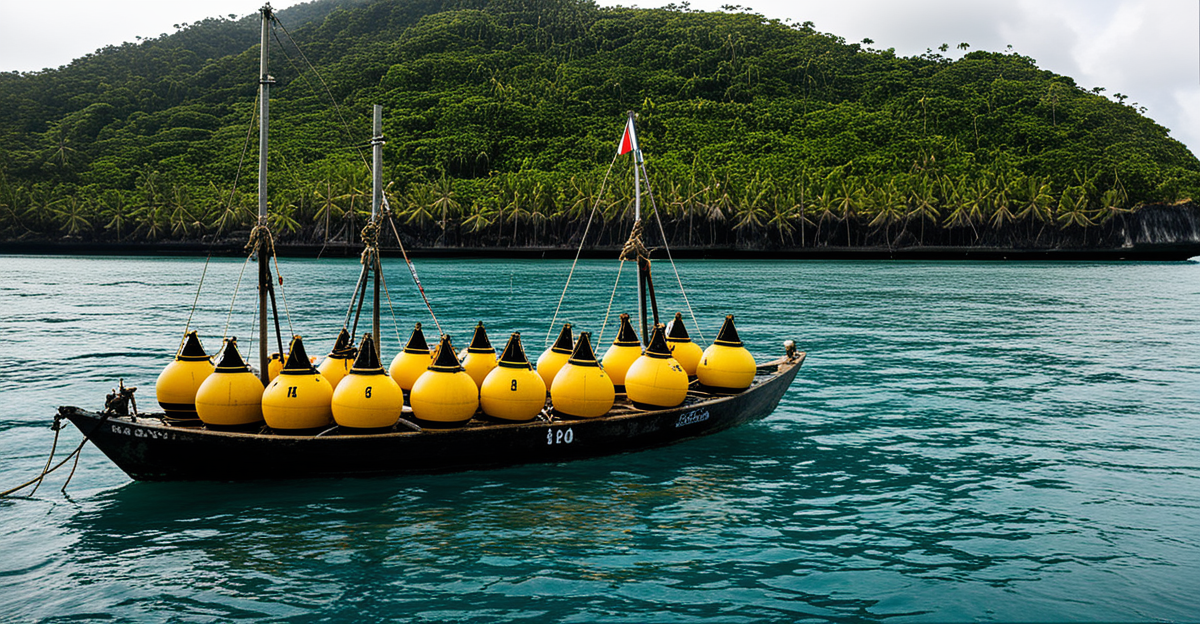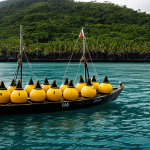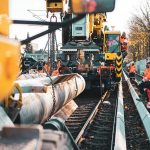Indonesia’s manufacturing sector plays a vital role in the maritime industry, particularly in the production of navigation buoys. These essential tools ensure safe passage for vessels navigating local waters. This article delves into key manufacturers, their specialized offerings, and adherence to international standards. Discover case studies and testimonials that highlight the importance of these products in enhancing maritime safety and operational efficiency.
Overview of Navigation Buoy Manufacturing in Indonesia
The maritime industry in Indonesia heavily relies on navigation buoys, with Mobilis emerging as a leading manufacturer of maritime buoys in Indonesia. Not only do they specialize in the design and production of various buoy types, but their expertise also extends to beaconing, light signaling, and marking functions essential for maritime safety. Mobilis ensures their products meet stringent international standards, utilizing materials that comply with IALA/AISM recommendations and ISO certifications.
Also to discover : Innovative energy solutions with vallourec smart tubulars
Indonesia’s buoy manufacturing sector follows rigorous regulatory standards, which govern both the production and deployment of navigation buoys. These regulations are crucial for maintaining operational efficiency and safety within the bustling maritime routes. By adhering to these standards, manufacturers like Mobilis provide high-quality solutions that support the nation’s marine infrastructure development.
In this context, navigation aids play a pivotal role, significantly enhancing safety for vessels navigating complex waters and ensuring effective maritime operations. The reliance on such technology showcases the importance of robust partnerships between manufacturers and maritime authorities, fostering ongoing development and technological advancements. This approach not only addresses current navigational challenges but also anticipates future maritime demands.
Have you seen this : Transforming energy with vallourec's advanced tubular technology
Types of Navigation Buoys Produced
Traditional vs. Innovative Buoy Designs
In the realm of buoy design and production in Indonesia, a blend of traditional craftsmanship and cutting-edge innovation is embraced. Traditional buoys, frequently seen in historic vessels, have evolved with technological enhancements to cater to modern maritime needs. Floating navigation aids in Indonesia have integrated smart technology to enhance functionality and durability. These innovations ensure optimal performance in diverse environmental conditions, a necessity for effective maritime safety.
Specialized Buoys for Different Maritime Needs
The manufacture of navigation buoys in Indonesia encompasses varied designs tailored to specific purposes. Offshore buoy applications include mooring buoys for anchoring ships, while specialized buoys are critical for marking fishing zones or shipping routes. The ability to adapt buoy marking and signaling systems to distinct maritime requirements strengthens the nation’s marine infrastructure capabilities.
Color Coding and Signaling Techniques in Buoy Design
A key aspect of navigation buoy production is buoy color coding standards. These standards ensure uniformity and immediate recognition by mariners, crucial for preventing maritime accidents. Color coding works in tandem with precise buoy marking and signaling systems to inform and guide vessels through safe passages or highlight navigational hazards. This integral part of the manufacture of navigation buoys underscores the commitment to maintaining marine navigation tools in Indonesia effectively recognizable, thus bolstering coastal safety and operational efficiency.
Manufacturers and Suppliers of Navigation Buoys
Key Players in the Navigation Buoy Manufacturing Sector
Indonesia is home to several prominent navigation buoy suppliers known for their expertise. Mobilis, celebrated for its role in the manufacture of navigation buoys, stands out with its comprehensive services encompassing design, development, and assembly. Their reputation is further cemented by partnerships with global clients like Vinci and Total. Such collaborations underscore their ability to meet the evolving demands of the marine navigation tools industry within and beyond Indonesia.
Customization Options Offered by Manufacturers
In Indonesia, custom buoy manufacturing services offer a spectrum of tailored solutions to meet specific marine requirements. Companies like Mobilis are adept at providing client-specific designs in buoy production workshops in Indonesia, ensuring the types of navigation buoys produced align with precise specifications. This customization extends to buoy color coding and material selection, both critical factors in enhancing visibility and adherence to international buoy manufacturing standards.
Case Studies Demonstrating Successful Buoy Installations
Successful buoy deployment is well-documented in Indonesia, with notable instances of buoy installation services Indonesia demonstrated in challenging waters. Case studies from Mobilis reveal the effective implementation of coastal safety equipment in scenarios requiring robust solutions. These implementations highlight the strategic collaboration between manufacturers and maritime authorities, which is vital in ensuring the importance of navigation aids for maritime safety is consistently prioritized.
Best Practices in Buoy Production and Maintenance
Quality Control Measures and Testing Protocols
The production of navigation buoys in Indonesia adheres to strict quality control measures. Industries utilize rigorous testing protocols to ensure that buoys meet high safety and durability standards. This involves checking materials used for navigation buoys, such as marine-grade plastics and metals, to ensure they adhere to international buoy manufacturing standards.
Regular Maintenance Practices to Ensure Buoy Longevity
Effective buoy maintenance and repair are crucial for maritime safety in Indonesia. Regular inspections help identify wear and potential failures, extending buoy service life. This involves routine cleaning to remove marine growth, checking buoy color coding standards for visibility and repainting as needed. Anchoring components are inspected frequently to prevent detachment in adverse weather conditions.
Sustainable Manufacturing Practices in Buoy Production
Sustainability is at the forefront of buoy production in Indonesia. Manufacturers prioritize the environmental impact of buoy manufacturing by using recyclable materials and innovative production techniques. This includes advancements in buoy anchoring technologies, which reduce ecological footprints by using lightweight, durable materials and minimizing seabed disturbance. By incorporating sustainable practices, companies ensure that their marine navigation tools contribute positively to coastal ecosystems.




